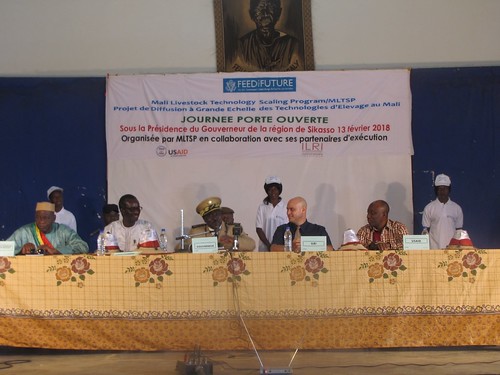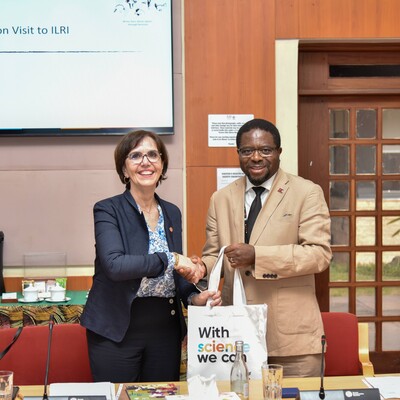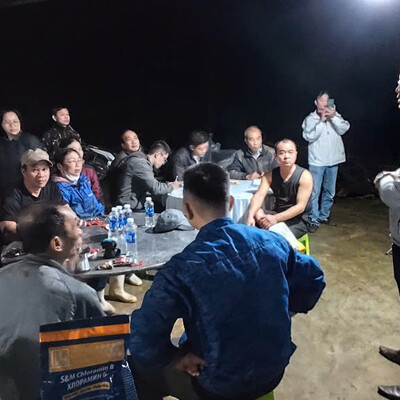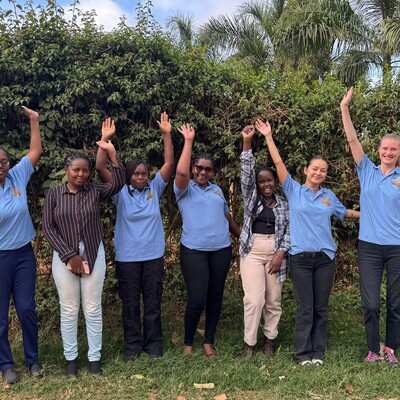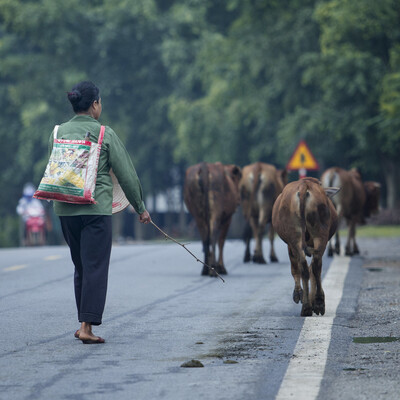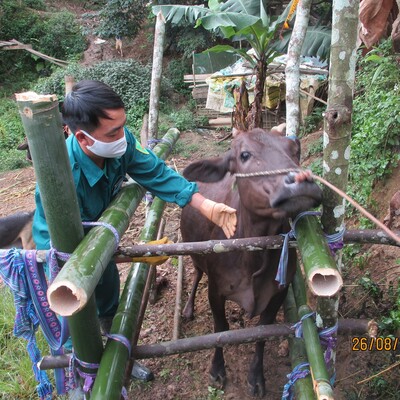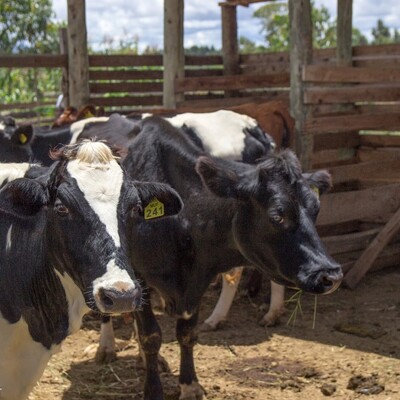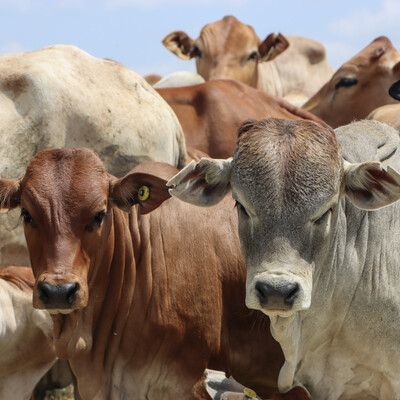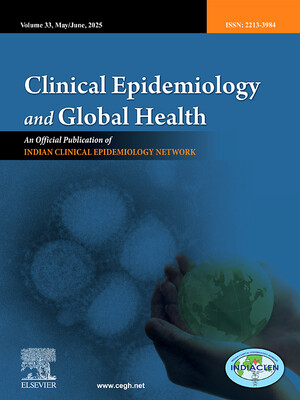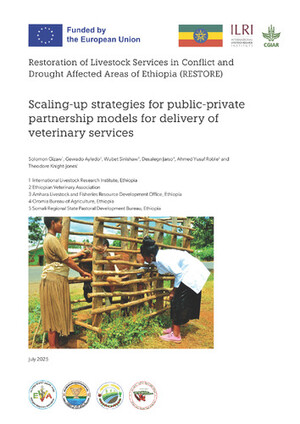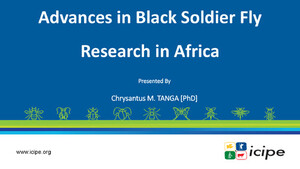
Empowering ruminant livestock enterprises in Mali—A Feed the Future-ILRI project
A woman milks one of her goats in Mali (photo credit: ILRI/Valentin Bognan Koné).
The Feed the Future Mali Livestock Technology Scaling Program is a three-year initiative (2016–2019) promoting inclusive growth of all actors adding value to the production and marketing of ruminant livestock in this large, and largely livestock-dependent, West African country. The program, led by the International Livestock Research Institute (ILRI) aims to increase the incomes and food and nutritional security of 266,000 people who keep cattle, sheep and goats, as well as other actors in this value chain in three regions of southern and central Mali: Sikasso, Mopti and Timbuktu. Supported by the United States Agency for International Development (USAID) as part of the US government’s Feed the Future initiative, this livestock program is helping to close productivity gaps in Mali’s ruminant production systems, enhancing both the volume and the value of these animals when marketed in the country.
The Feed the Future Mali Livestock Technology Scaling Program team hosted an open day on 13 Feb 2018 in Mali’s southern city of Sikasso to increase the program’s visibility, share some successes of the project to date and ask for recommendations to improve the project.
More than one hundred people attended the open day including livestock producers (fatteners, forage producers, cooperative members, livestock traders) and representatives of USAID and network organizations of USAID-funded projects, local authorities, national directorates and their local branches, decentralized communities, non-governmental organization partners, and print and broadcast media. After opening discussion, the participants visited Farakala, 40 km from Sikasso, where they were
invited to assess the level of technical expertise gained by agro-pastoralists.
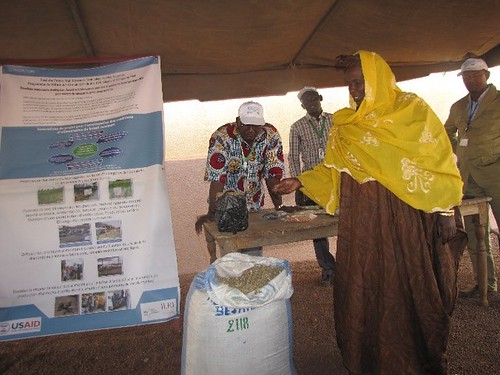
They did so through interviews with promoters of facilities to store livestock forage crops (Brachiaria), fattening workshops, a pastoral farm and a cattle feed factory unit managed by women.
The day ended with a knowledge fair on the central themes of the program.
Recommendations
Among other recommendations, participants stressed the need to expand the program beyond its current funding lifetime, to strengthen links between farmers and financial institutions to make credit more accessible for farmers and other livestock value chain actors, to employ media to increase awareness of animal health issues, to support establishment of a sustainable Brachiaria seed system and avail feed grinders to women’s groups, and to support women’s groups’ promoting small-scale feed factory units supply multi-nutrient livestock feed blocs and compound feeds.
Progress on program interventions
It was reported that Mali’s Laboratoire central vétérinaire (LCV) had completed testing of the thermo-stability of three batches of vaccines against peste des petits ruminants (commonly known as ‘sheep and goat plague’). Results of analyses from the Pan African Veterinary Vaccine Centre of the African Union (PANVAC), in Ethiopia, indicated that two vaccines, produced according to the Xerovac protocol and the ILRI protocol, meet the latest thermo-tolerant requirements. ILRI, LCV and national partners will deploy the new livestock thermo-tolerant vaccines in the field in the coming weeks.
The program team also vaccinated 69,323 cattle against contagious bovine pleuro-pneumonea; 29,557 cattle and 8,143 small ruminants against a bacterial infection called pasteurellosis; and 39,435 small ruminants against peste des petits ruminants.
Jay Angerer, from Texas A&M University, visited Mali’s capital of Bamako 12–22 Feb 2018 to provide technical support for a Livestock Market Information System (LMIS). During his visit, Angerer upgraded LMIS software, established protocols for back up and data management, and trained local stakeholders on the use of LMIS and database maintenance. Together with ILRI staff, he joined a meeting to explore integrating LMIS data into an interactive voice response platform developed by Viamo, a social enterprise company for data collection and public service information via mobile.
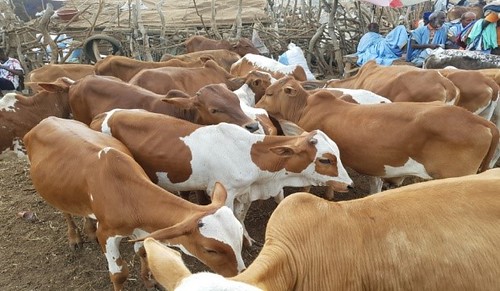
Other activities reported in the last update continued, with various field visits by controllers to ensure regular market monitoring and data reliability, further dissemination of livestock market information on community radio and ongoing enumerator training.
More information
Read a brochure about the Feed the Future Mali Livestock Technology Scaling Program.
Read the latest quarterly progress report (Apr–Jun 2017) on this program.
Read more from the Feed the Future Mali Livestock Technology Scaling Program.
For more information, contact Abdou Fall, program manager, ILRI, a.fall@cgiar.org







